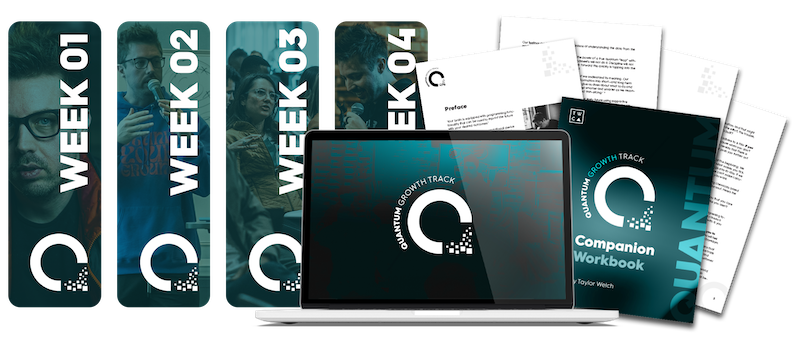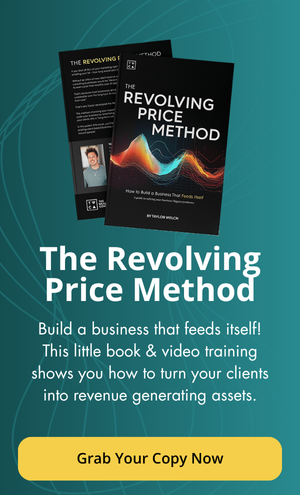
Before You Dive In
Less Talk = More Power?
An excerpt from the book “48 Laws of Power” by Robert Green:
Down on his luck, [the screenwriter] Michael Arlen went to New York in 1944. To drown his sorrows he paid a visit to the famous restaurant “21.” In the lobby, he ran into Sam Goldwyn, who offered the somewhat practical advice that he should buy racehorses. At the bar Arlen met Louis B. Mayer, an old acquaintance, who asked him what were his plans for the future. “I was just talking to Sam Goldwyn…” began Arlen. “How much did he offer you?” interrupted Mayer. “Not enough,” he replied evasively. “Would you take fifteen thousand for thirty weeks?” asked Mayer. No hesitation this time. “Yes,” said Arlen1.
This is an anecdotal story, but there is psychological research that backs this up.
Researchers Cheryl J. Wakslak and Albert Han found that people typically equate individuals with more power when they use less concrete language. The researchers presented participants with various types of speech and asked them to evaluate the communicators on various traits. These traits included power, warmth, competence, and thinking.
In one of the experiments, participants rated politicians as more powerful when quotes attributed to them were abstract as opposed to detailed and concrete. Across the entire series of multiple studies, the use of less detail and less communication in general led the speaker to be perceived as more powerful2.
One of my old companies focused heavily on recruiting and training sales personnel. A large part of our training dealt with brevity. Merriam-Webster defines brevity as follows: shortness of duration; especially: shortness or conciseness of expression.
We noticed from one of the largest sample sizes of sales calls in our industry that when sales personnel talked too much, they lost influence. When they spoke too little, they lost trust. There is a sweet spot in the middle where they are able to answer questions, speak to issues, and guide conversations by saying just enough without getting in the way.
Internal processors intuitively understand this. I am an internal processor and, as such, tend to say less than everything I’m thinking. Not because I am trying to hide anything, but because I require time to process before I say something. Verbal processors, on the other hand, tend to figure out what they’re thinking as they’re talking.
This erodes influence.

The SCARF Model
There are many reasons for this — cognitive fluency bias being the main one. David Rock published a model in 2008 he called the “SCARF” model, which identifies five social statuses that determine how people determine risk and reward3.
- Status – how important or respected they feel.
- Certainty – how predictable the environment feels.
- Autonomy – how much control they have.
- Relatedness – whether they feel safe and connected.
- Fairness – whether they perceive fairness in interactions.
When you talk too much, it can position the listener as less competent, which triggers a status risk. Talking too much comes across as over-explaining or processing out loud, which triggers a certainty risk. Once a conversation is in motion, it is hard to overcome these two main risks.
One of my favorite questions to ask leaders, clients, and team members is this: “How can you say everything you just said in half the words?” It’s a mental exercise that trains the mind to communicate with brevity.
As always, everything we discover psychologically has its roots in ancient wisdom. We are merely discovering what the ancients knew long ago.
“When words are many, transgression is not lacking, but whoever restrains his lips is prudent.” Proverbs 10:19
“Whoever restrains his words has knowledge… Even a fool who keeps silent is considered wise.” Proverbs 17:27
Energy and Transfer
In 1995, Benjamin Schumacher developed the “Schumacher Compression.4” It was designed to answer the question, “What’s the minimum number of qubits needed to faithfully transmit a quantum source with high fidelity?” Ideas, messages, and data sets can be compressed. Picture a zip file but apply it to qubits or ideas.
As long as the receiver knows the decompression scheme, the original message can be recovered almost perfectly, even if it’s lacking most of the information. Applying this to communication, we can use it immediately.
The mind is highly sophisticated and skilled at decoding messages. After all, we were designed first and foremost for communication. Most people already know the context intuitively and can infer meaning from minimal cues.
When you speak, you are transmitting more than just words. Your tone, breaks, cadence, timing, and nonverbal nods are telling a story just as your words are telling a story.
Most of what we say is mostly unnecessary, it just feels better to talk more than it does to talk less. One of the fastest ways to level up a person’s influence is to get them to say less without communicating less.
Difficult at first, but well worth the effort.
- Greene, R. (2000). The 48 laws of power. Penguin Books.
- Association for Psychological Science. (2014, July 11). You look more powerful when you avoid talking details, study shows. APS Observer. https://www.psychologicalscience.org/news/minds-business/you-look-more-powerful-when-you-avoid-talking-details-study-shows.html
- Rock, D. (2008). SCARF: A brain-based model for collaborating with and influencing others. NeuroLeadership Journal, 1, 1–9.
- Schumacher, B. (1995). Quantum coding. Physical Review A, 51(4), 2738–2747. https://doi.org/10.1103/PhysRevA.51.2738


